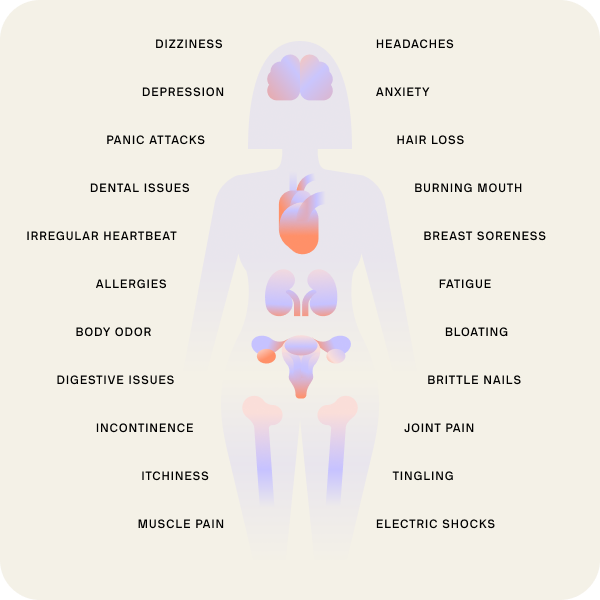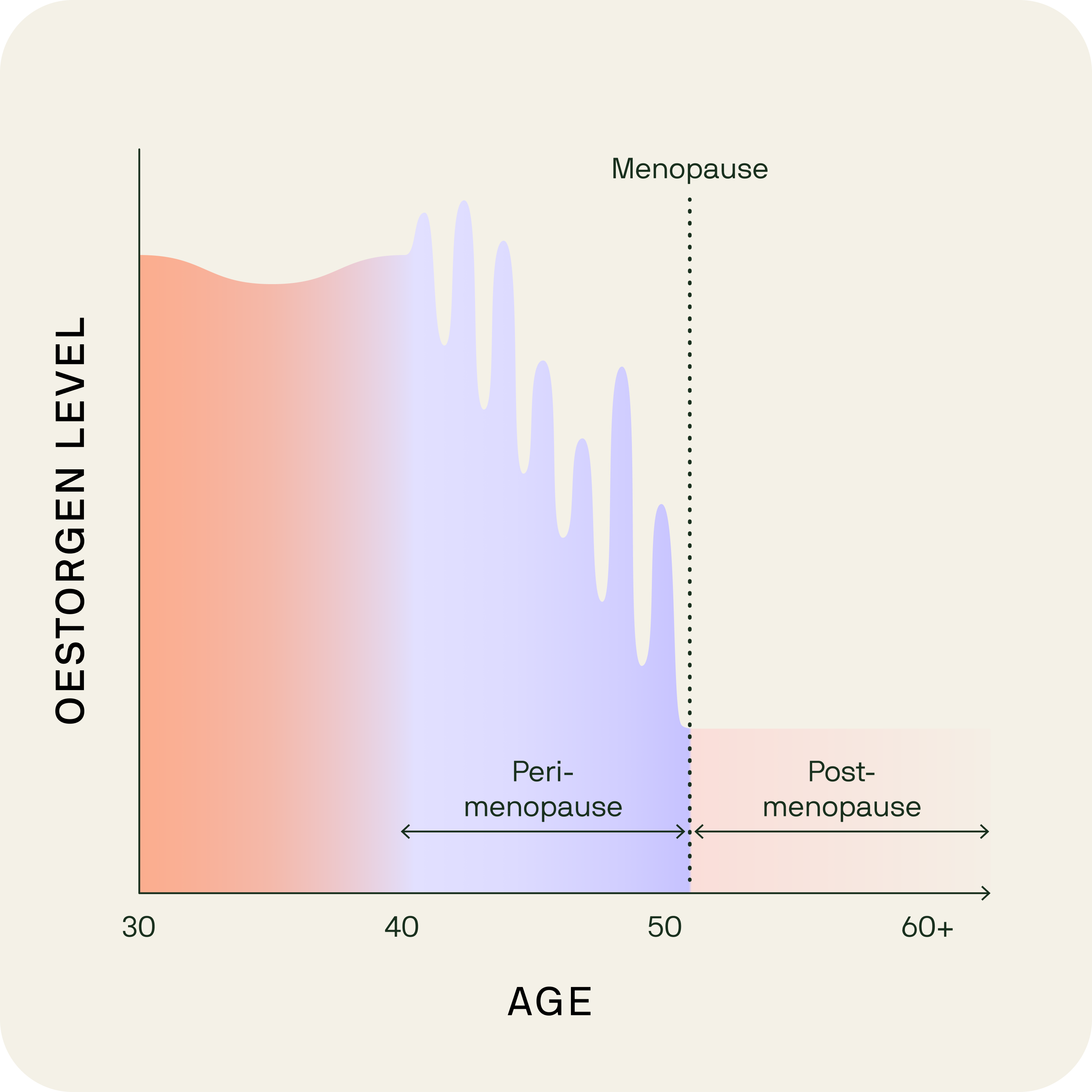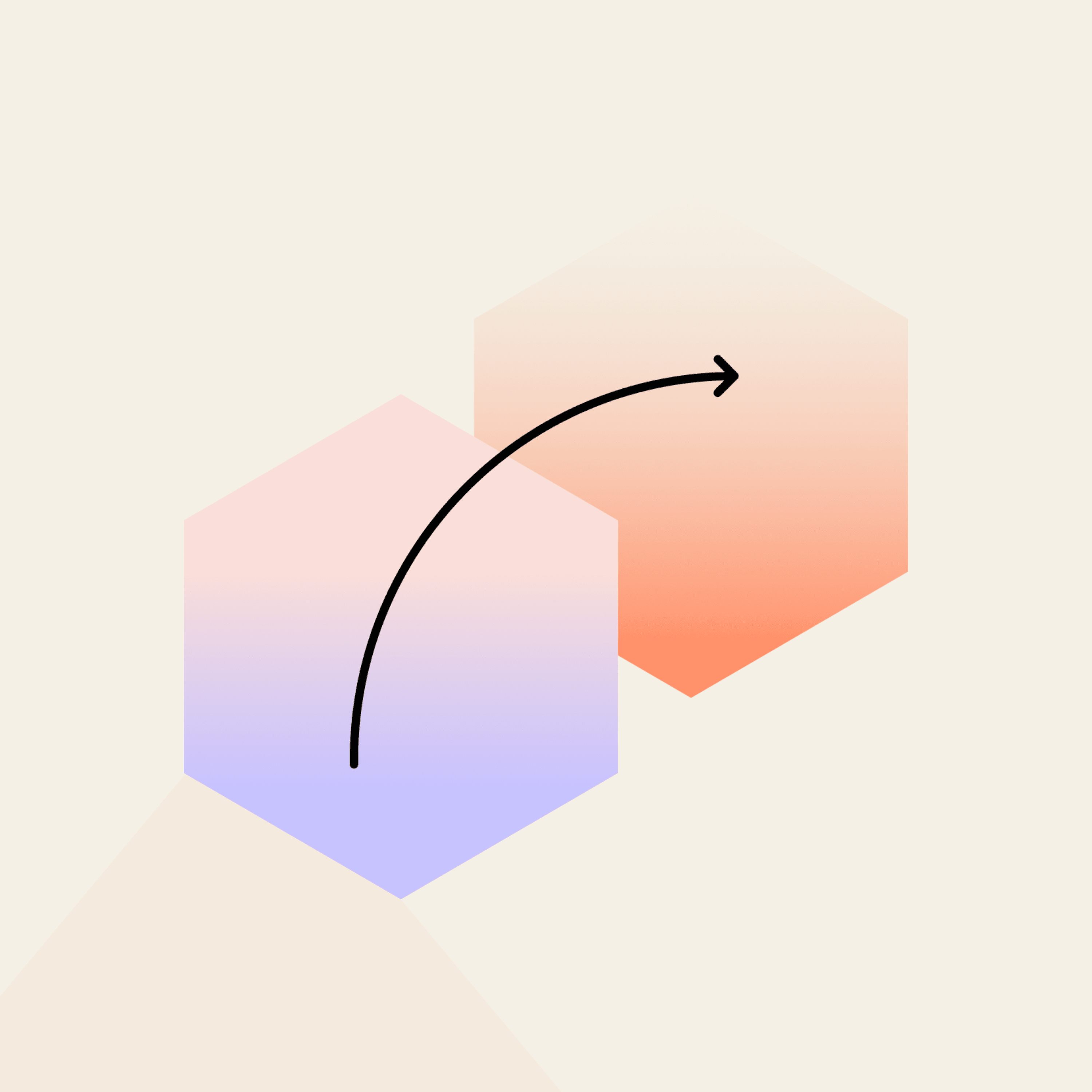What is menopause — really?
Menopause is a natural biological stage in a woman’s life when periods stop permanently, marking the end of fertility. It happens because the ovaries run out of eggs, and the production of key hormones such as oestrogen, progesterone, and testosterone gradually declines[1]. Menopause is confirmed when you haven’t had a period for 12 months in a row.
It usually happens between the ages of 45 and 55, but can for some occur before age 40 which is known as premature menopause or premature ovarian insufficiency (POI). Some menopausal changes can also be brought about by treatments for cancer like chemotherapy, ovarian ablation and hormone therapy.
As women get older the store of eggs in the ovaries runs lower and lower, less hormones, the key one being oestrogen is released, leading to changes in the body that can cause a range of symptoms. These symptoms can often start long before your final period and can continue for years after.
Understanding what’s happening in your body can help you feel in control as your hormones change. And with the right support, you don’t just have to cope, you can feel better than ever.
What are the symptoms of menopause?

The hormonal shifts of menopause can lead to a wide range of symptoms. These vary in intensity and duration, and not every woman will experience them in the same way. Some of the most commonly reported include:
- Hot flushes and night sweats
- Mood swings, anxiety, or low mood
- Sleep disturbances and fatigue
- Brain fog, memory lapses, or poor concentration
- Joint and muscle pain
- Weight changes
- Loss of libido
- Vaginal dryness and discomfort
- Irregular or heavy periods during perimenopause
This is just to name a few. In fact, over 30 symptoms have been associated with the menopause transition [2,3].
What age does menopause start?
In the UK, the average age of menopause is around 51, but it varies widely from person to person. The perimenopause the transition leading up to menopause often begins in the early to mid-40s, though some women may notice changes even earlier.
Several factors can influence when menopause starts, including:
- Genetics (the age your mother or sisters experienced menopause)
- Age at first period
- Use of hormonal contraception
- Number of pregnancies
- Body weight (BMI)
- Smoking or alcohol use
- Physical activity levels
- Ethnicity and cultural background
For some women, menopause can happen much earlier. POI is when menopause occurs before the age of 40. It can happen naturally or be triggered by certain medical treatments.
Cancer treatments like chemotherapy, radiotherapy, or surgery to remove the ovaries can lead to a sudden menopause, sometimes called induced menopause. This type of menopause often comes with more intense or abrupt symptoms, as the body has less time to adjust.
What is the difference between perimenopause, menopause and postmenopause?

- Perimenopause: The years leading up to menopause when hormone, especially oestrogen levels, fluctuate. Symptoms often begin here.
- Menopause: The point at which periods have stopped for 12 consecutive months.
- Postmenopause: The time after menopause. Hormone levels stabilise at a lower level, but symptoms may continue or evolve [5].
How long does menopause last?
Menopause itself is a single day — but the transition can last many years. Perimenopause can span 4–8 years, and postmenopausal symptoms may persist for a decade or more, particularly hot flushes and sleep issues [6,7].
What is early or premature menopause?
Early menopause refers to the permanent end of menstruation before age 45. When it occurs before age 40, it is called Premature Ovarian Insufficiency (POI). POI affects about 1 in 100 women under 40 and can occur spontaneously or due to surgery, chemotherapy, radiation, or genetic and autoimmune conditions.
The early drop in oestrogen increases the risk of infertility, osteoporosis, cardiovascular disease, and mental health challenges. Genitourinary symptoms, such as vaginal dryness and urinary issues, are also common.
Hormone replacement therapy (HRT) is usually recommended until the average age of natural menopause to replace lost hormones, support bone and heart health, and improve quality of life. Early diagnosis, personalised treatment, and fertility counselling are key to long-term health and wellbeing [8,9].
Can you stop menopause?
Menopause is a natural part of ageing. So no, you can’t stop it. But you can treat the symptoms and feel more like yourself again. Hormone replacement therapy (HRT), lifestyle changes, and emotional support can all make a real difference [10].
The bottom line
This as a transition, not an ending.
Menopause isn’t something to just get through. It’s a transition — and with the right support, it can be a time to reset, reprioritise and feel more in control of your health than ever before.


